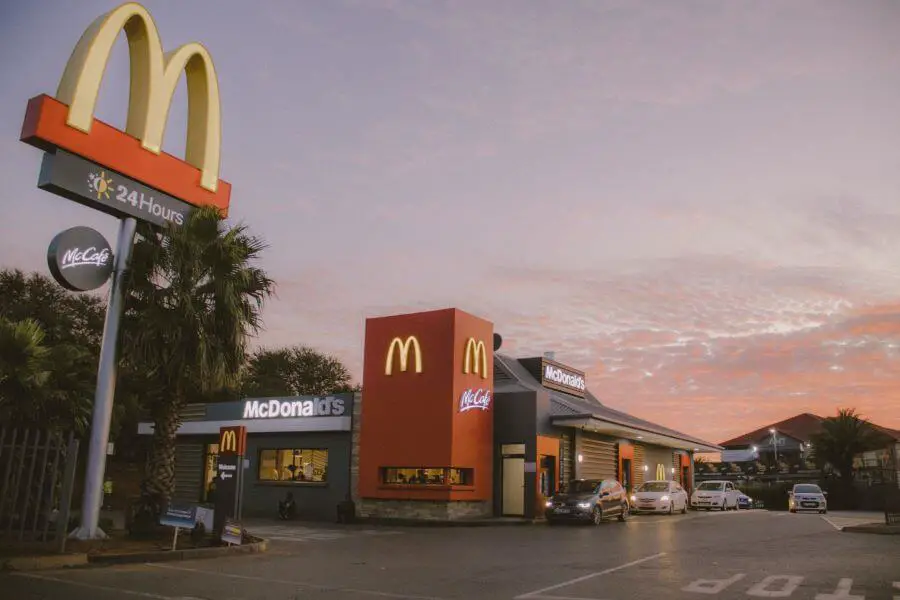A Holistic Approach to Corporate Social Responsibility
Introduction to McDonald’s CSR
McDonald’s, the global fast-food giant, has long recognized its responsibility towards society and the environment. The company’s commitment to Corporate Social Responsibility (CSR) is deeply ingrained in its operations and forms an integral part of its business strategy. McDonald’s core values of quality, service, cleanliness, and value are reflected in its CSR initiatives, which range from sustainable sourcing and waste reduction to diversity and inclusion efforts.
Over the years, McDonald’s has evolved its CSR approach to address emerging societal needs and global challenges. Today, the company is committed to using its scale for good and making a positive impact in the communities it serves.
Beyond the Happy Meal: Sustainable Sourcing
Sustainable sourcing is a key component of McDonald’s CSR strategy. The company understands that its large-scale operations have significant environmental implications and is committed to minimizing its impact through responsible sourcing practices.

This commitment extends across all ingredients used in McDonald’s menus. From the beef for its burgers to the coffee for its McCafé range, McDonald’s strives to source all its products in an ethical and environmentally friendly manner. The company collaborates with suppliers, farmers, and industry experts to improve its sourcing practices and promote sustainability in its supply chain.
Community Impact Programs
McDonald’s believes in giving back to the communities where it operates. The company runs various programs aimed at supporting education, youth development, and community well-being.
One such initiative is the Ronald McDonald House Charities (RMHC), which provides free accommodation for families with hospitalized children. RMHC has helped millions of families worldwide, providing them with a ‘home away from home’ during difficult times.
Additionally, McDonald’s supports various local causes and events through donations, sponsorships, and volunteerism. These community impact programs reflect McDonald’s commitment to making a positive difference in society.
Job Creation and Economic Impact
As one of the world’s largest employers, McDonald’s plays a significant role in job creation. The company provides employment opportunities for people of all ages and backgrounds, offering flexible work schedules, competitive wages, and career advancement opportunities.
Beyond direct employment, McDonald’s also contributes to economic growth through its extensive supply chain, which supports numerous businesses and industries worldwide. By promoting economic prosperity, McDonald’s helps to empower communities and improve living standards.
Waste Reduction Initiatives
McDonald’s is committed to reducing waste and promoting recycling in its operations. The company has set ambitious goals for minimizing packaging and moving towards a more circular economy.
In line with these goals, McDonald’s is transitioning to renewable or recycled materials for all its packaging and is working towards recycling guest packaging in all its restaurants. Through these initiatives, McDonald’s aims to reduce its environmental footprint and contribute to a more sustainable future.
Energy Efficiency and Green Practices
McDonald’s recognizes the importance of energy efficiency and green practices in mitigating climate change. The company is investing in modern, energy-efficient restaurant designs and equipment to reduce its energy consumption.
Additionally, McDonald’s is exploring renewable energy options to power its restaurants and reduce its greenhouse gas emissions. These efforts reflect McDonald’s commitment to environmental stewardship and its dedication to playing its part in tackling climate change.

Workplace Diversity
McDonald’s believes that a diverse and inclusive workforce is key to its success. The company is committed to promoting diversity in all aspects of its business, from hiring and training to leadership and decision-making.
McDonald’s strives to provide an inclusive workplace where all employees feel valued and respected. The company offers various programs and resources to support diversity and inclusion, including employee networks, diversity training, and policies to prevent discrimination and harassment.
Supplier Diversity
McDonald’s commitment to diversity extends beyond its workforce. The company also promotes diversity among its suppliers through its Supplier Diversity Program.
This program aims to provide equal opportunities for businesses owned by minorities, women, and other underrepresented groups. By promoting supplier diversity, McDonald’s helps to empower these businesses and contribute to economic equality.
Responsible Advertising
McDonald’s is committed to responsible advertising. The company adheres to strict guidelines to ensure that its marketing communications are transparent, truthful, and respectful.

McDonald’s particularly emphasizes responsible marketing when it comes to children. The company has made a pledge not to advertise unhealthy food choices to children and to promote balanced diets and active lifestyles in its marketing campaigns.
Health and Nutrition Commitments
In response to growing concerns about health and nutrition, McDonald’s has made several commitments to improve the nutritional profile of its menu items. These include reducing salt and sugar content, offering more fruit and vegetable options, and providing clear nutritional information to help customers make informed choices.
Through these efforts, McDonald’s aims to address health concerns and contribute to the well-being of its customers.
Addressing Criticisms
Like any large corporation, McDonald’s faces various criticisms and challenges related to its CSR practices. These include concerns about health impacts, labor practices, and environmental footprint.
McDonald’s takes these criticisms seriously and is committed to addressing them. The company continuously reviews its policies and practices to identify areas for improvement and align its operations with societal expectations and global standards.

Continuous Improvement
Continuous improvement is a cornerstone of McDonald’s CSR strategy. The company recognizes that CSR is a journey and is committed to learning, evolving, and improving its practices over time.
To this end, McDonald’s regularly engages with stakeholders, including customers, employees, suppliers, and NGOs, to gather feedback and insights. This engagement helps McDonald’s to understand diverse perspectives, identify emerging issues, and develop effective solutions to CSR challenges.
Metrics and Measurement
Measuring the impact of CSR initiatives is crucial for understanding their effectiveness and identifying areas for improvement. McDonald’s uses various metrics and measurement tools to assess the impact of its CSR initiatives.
These include key performance indicators (KPIs) related to environmental performance, social impact, and economicAn error occurred during generation. Please try again or contact support if it continues.
Economic Performance
McDonald’s tracks its economic performance through various financial metrics, such as revenue, profit, and return on investment. These figures not only indicate the company’s financial health but also reflect the economic value it generates for stakeholders.
In addition to financial metrics, McDonald’s also measures its contributions to local economies. This includes jobs created, taxes paid, and spending on local suppliers. By tracking these indicators, McDonald’s can assess its economic impact and identify opportunities to further contribute to economic development.
Reporting and Disclosure
Transparency is key to McDonald’s CSR approach. The company believes that open communication about its policies, practices, and performance helps to build trust with stakeholders and hold itself accountable.
To this end, McDonald’s publishes regular CSR reports that provide detailed information about its CSR initiatives and performance. These reports are prepared in accordance with international reporting standards and include third-party verification for key data points.
Additionally, McDonald’s communicates about its CSR activities through various other channels, including its website, social media, and stakeholder meetings. Through these communications, McDonald’s aims to keep stakeholders informed and engaged in its CSR journey.
Evolving CSR Landscape
The landscape of CSR is constantly evolving, shaped by emerging societal needs, global challenges, and stakeholder expectations. McDonald’s is committed to staying ahead of these developments and continuously evolving its CSR strategy.

This may involve adopting new approaches, such as integrating circular economy principles into its operations or leveraging technology to enhance its social impact. It may also involve addressing new issues, such as digital privacy or plant-based diets.
Influencing Industry Practices
As a global leader in the fast-food industry, McDonald’s has the potential to influence industry practices and set new standards for CSR. The company is committed to using this influence to drive positive change and inspire other companies to adopt more responsible practices.
By doing so, McDonald’s can contribute to the broader goal of sustainable development and help create a better future for all.
Sources:
- McDonald’s Corporate Social Responsibility & Sustainability Report. McDonald’s Corporation.
- McDonald’s: Our Purpose and Values. McDonald’s Corporation.
- McDonald’s: Sustainable Sourcing. McDonald’s Corporation.
- Ronald McDonald House Charities. RMHC.
- McDonald’s: Scale for Good. McDonald’s Corporation.
- McDonald’s: Diversity and Inclusion. McDonald’s Corporation.
- McDonald’s: Nutritional Information. McDonald’s Corporation.
- McDonald’s: Our Commitment to the Environment. McDonald’s Corporation.
- McDonald’s: Stakeholder Engagement. McDonald’s Corporation.
- McDonald’s: Economic Impact. McDonald’s Corporation.
- McDonald’s: Responsible Marketing. McDonald’s Corporation.





